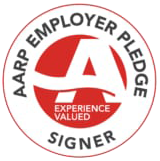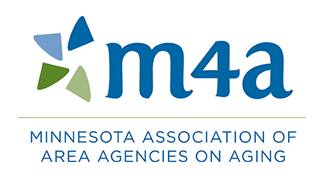Social Isolation
/in News, Executive Director's Letter/by Erica SchottOne evening, my family and I discussed going out to see some friends when we were abruptly reminded that we could not! It felt weird, but we had to be responsible. We had been exposed to someone with COVID-19. We could not go anywhere. It felt like we were in a cage, able to do things but only in our home. Once we met the quarantine timeframe, we re-entered society and participated in our usual activities. Upon reflection of our time secluded, I pointed out to my children, imagine being “quarantined” for a year.
Some older adults have been self-quarantined, isolated, or secluding themselves even before the pandemic. A few examples of why people may have become isolated could be from a fear of falling, inability to find adequate transportation, or dealing with untreated/undiagnosed anxiety.
A recent study by The Coalition to End Social Isolation and Loneliness stated that social isolation could lead to a 29% increased risk of premature death. The report discusses other negative factors that isolation and loneliness have on health, like, chronic lung disease, depression, self-neglect, addiction, abuse and exploitation.
What is MNRAAA doing to address this societal issue? First, we are naming it and calling attention to this issue. We may see it in our communities and within our families and we need to start talking about it. The first step in any solution is to identify the problem. So here it is, social isolation and loneliness is a problem.
Second, we are advocating at the federal and state level for additional funding to target organizations that assist those in combating social isolation. Because numerous programs have recently evolved, namely telemedicine and telephone reassurance programs, it is essential that reliable broadband internet is available to everyone. The Federal Communications Commission has made emergency broadband benefits available to assist in providing internet to everyone. Also, many local internet providers are working to establish more reliable and affordable internet service.
I challenge you to call attention to this problem. It will take all of us to work through social isolation and loneliness. We are stronger when we work together and together we can assist older adults to thrive!
– Jason W. Swanson
CAPABLE Program Expands Eligibility Area
/in News, Program Development/by Erica SchottIn partnership with Allina Health – Home Health and Habitat for Humanity, the Minnesota River Area Agency on Aging is now accepting referrals for a new, grant-funded CAPABLE program.
CAPABLE (Community Aging in Place—Advancing Better Living for Elders) was developed by the Johns Hopkins School of Nursing. The program helps seniors by teaming a nurse, an occupational therapist, and a handy worker to address the home environment and assist the older adult in setting goals to improve safety and independence. As part of this, the program also provides minor home modifications. Our goal is to support seniors in our community to safely age in place at home.
Changes to the physical space motivate participants, addressing both the person and the environment they live in, allowing them to thrive.
Participant criteria:
- aged 65 years and older
- own their own home and live in Brown, Nicollet, Watonwan, eastern Redwood, or southern Sibley counties
- do not have the means to afford home modifications
- cognitively intact or have only mild cognitive impairment to be able to participate in the brainstorming and action planning process
- some or a lot of difficulty in performing Activities of Daily Living, such as bathing, dressing, grooming, or walking across a small room
This program is separate from any insurance-covered Home Health episode (homebound status and skilled clinical need not required). This project is funded by the Minnesota Department of Human Services Live Well at Home Grant.
To enroll, contact:
National Family Caregivers Month
/in Caregiving/by Erica SchottNational Family Caregivers Month is celebrated every November and is a time to recognize and honor caregivers across the country. It is also a time to raise awareness of caregiving issues, educate communities, and increase support for caregivers. The 2021 theme is “Caregiving Around the Clock.”
It is important to remember the friends, loved ones and neighbors who help with grooming and bathing, clean houses and shop for older adults and others who need to be cared for.
Watching a parent age or seeing someone you care for change drastically due to illness can be devastating. If you are a caregiver, take time to check your wellbeing. If you are not sleeping well, exercising, or feel yourself becoming more isolated, talk to someone. There is no shame in feeling overwhelmed or in asking for help.
Some simple ideas that may be helpful include:
- Attend a conference or workshop on caregiving. Many are available online now, and you may receive practical advice, as well as learn that you are not alone. Learn more at aarp.org/caregiving or powerfultoolsforcaregivers.org/class-type/minnesota
- Find a local support group. You can find some support groups on our website: mnraaa.org/calendar.
MINNESOTA RIVER AREA
AGENCY ON AGING
201 N. Broad St.
Suite 102
Mankato, MN 56001
Phone: 507.387.1256
Fax: 507.387.6223




